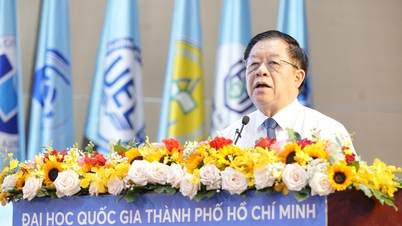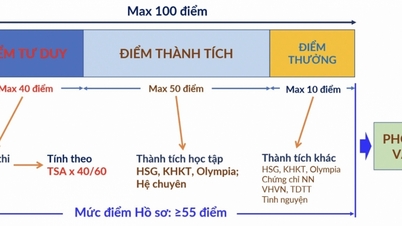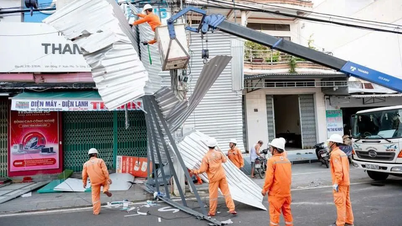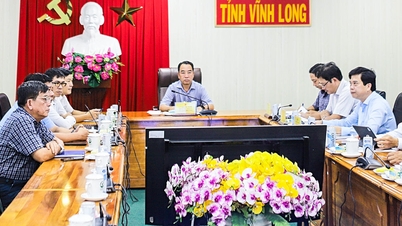The education sector needs to look directly at these shortcomings to prepare for a fairer and more transparent 2026 admission season, in line with the requirements of Resolution 71 of the Politburo , which is "Building a project to innovate university admissions in the direction of properly assessing learners' abilities".
The outstanding problems of the 2025 admission season can be summarized in a few points.
The first is the situation of virtual benchmark scores, many majors jumped to 29 - 30/30 points, an unreasonable threshold, creating a sense of impossibility. The second is the explosion of wishes, with each candidate registering on average nearly ten wishes, causing the system to overload.
Third, the conversion of test scores, transcripts, foreign language certificates and competency assessments is too arbitrary and lacks standards, leading to the same ability but candidates can differ by a few points just because they choose different methods. Fourth, the admission combinations overlap, many majors allow up to a dozen combinations, making the scores lose their meaning of comparison.
As a result, many students fail despite studying seriously, while those who choose the right "niche" benefit...
If viewed in the spirit of Resolution 71, it is clear that the recent results show that the enrollment target has deviated from the target. The Resolution requires proper assessment of students' abilities, meaning that enrollment cannot be turned into a race for scores.
Converting foreign language certificates into admission scores or adding priority points excessively has distorted real abilities. Foreign language ability should be determined by output standards during the training process, and should not be a "ticket" to add points at the entrance, giving public opinion a reason to criticize.
Another problem is the admission combination. When a major allows too many combinations, from Math - Physics - Chemistry to Literature - History - Geography or even combinations with aptitude subjects, the scores no longer reflect the true ability of the student. Many schools expand the combination without a scientific basis of the major to select the right student, but the main purpose is to fill the quota.
If left unchecked, this situation will turn the admission process into a chaotic one, where high scores are not necessarily appropriate. Therefore, there should be clear limits: each major should only have one or two combinations, linked to the actual requirements of the major.
In addition, admission cannot only rely on multiple-choice tests or transcripts, but should combine other methods such as interviews, essays, and evaluation of activity records to ensure a comprehensive assessment of abilities and qualities. In the world , many universities have applied this method, both assessing critical thinking and communication skills, and avoiding the situation where students only practice for exams. This is also a way to realize the requirements in Resolution 71, helping to recognize comprehensive abilities instead of just through scores.
The above shortcomings require the Ministry of Education and Training to focus on developing a feasible and effective plan for the 2026 enrollment season. First of all, there must be solutions to limit the shortcomings in the 2025 enrollment season, standardize and simplify enrollment methods, tighten the conversion and addition of foreign language points, and increase the application of information technology...
Another important thing is that university admission cannot be separated from the high school graduation exam. Therefore, the exam must be tested and standardized; the number of graduation and admission exams must be determined to be large enough to properly assess admission capacity, while avoiding the consequences of lopsided learning.
Resolution 71 has provided clear direction. What the education sector needs to do now is not only make technical adjustments for the 2026 admission season, but also be determined to rebuild the entire process, prioritizing the quality and real capacity of candidates. Only when admissions return to the right goal of serving learners and the training needs of society can we build a fair, transparent and sustainable higher education system.
Source: https://www.sggp.org.vn/trong-nang-luc-trong-tuyen-sinh-dai-hoc-post814241.html





![[Photo] "Ship graveyard" on Xuan Dai Bay](https://vphoto.vietnam.vn/thumb/1200x675/vietnam/resource/IMAGE/2025/11/08/1762577162805_ndo_br_tb5-jpg.webp)




































![[Video] Hue Monuments reopen to welcome visitors](https://vphoto.vietnam.vn/thumb/402x226/vietnam/resource/IMAGE/2025/11/05/1762301089171_dung01-05-43-09still013-jpg.webp)




































































Comment (0)